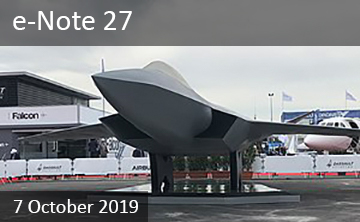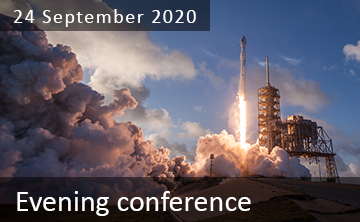
New Space : conséquences politiques, industrielles et doctrinales de l’entrée des nouveaux acteurs du secteur spatial
A revolution in space funding, exploration and commercialisation is underway. Driven by major technological advances and organisational innovations, new actors are now playing in an arena that was in the past dominated almost exclusively by great industrial groups supported by powerful countries. These new actors are private firms belonging for most of them to the digital entrepreneurship. This trend is often named astropreneurship. They are now altering the dynamics of space industry and raising important commercial but also strategic questions for policymakers and military planners. With regard to the successes achieved by these groups (SpaceX funded by Elon Musk, Blue Origin funded by Amazon CEO Jeff Bezos), it is not exaggerated to say that a paradigmatic shift is currently underway in the space sector. This shift is labelled “New Space”. Nonetheless, the recent bankruptcy of One Web and its consequences (stopping the development of its mega-constellation of satellites to deliver worldwide) reminds us that New Space is not immune to external destabilising factors.
The New Space industry is currently challenging legacy actors of the space sector. In the new space business landscape, private firms no longer operate as contractors to nation states but are themselves becoming key protagonists in space. In 2017, SpaceX launched no less than 18 rockets and recovered 14 reusable boosters. New Space is not only about SpaceX and its performances. It is also about the rise of the new brand structure of the European market. Small and medium enterprises, not only in Europe but also in the United States, rival with traditional actors and are making significant advances in their own space programmes.
The emergence of New Space actors also redefines the cost-benefit ratio of launching programmes. Traditionally, investors have considered the commercial opportunities of space to entail high risks, high costs and long payment periods. The New Space industry has led investors to revise their perception of the sector. Gradual improvements in managerial practices and the falling cost of technology have contributed to reduce development, launch and payload costs. SpaceX, for example, has specially designed its Falcon rockets to maximise standardisation, which, in turn, has reduced the number of processes and the tools required prior to any given launch.
Yet, New Space is a misleading expression for it implies that there would be an old space, with old-fashioned and musty habits. Though such a description has a part of truth, these features do not define all traditional actors operating in the space sector. Many “new” trends steer the evolution of space activities. Moreover, New Space is now getting older. In the wake of SpaceX or Blue Origin, start-ups multiplied and have finally formed an incredibly diverse ecosystem. Lastly, it must be underlined that New Space actors are not totally hermetic to old practices. Even more when funding research is concerned. Many programmes conceived and developed by New Space companies – especially those conducted by SpaceX – depend of public funding.
New Space raises many questions about the future of European space policy and the ability of European main actors to adapt to the new industrial dynamics. Great challenges lay ahead of “legacy” industries. New Space also questions the capacity of the nation’s militaries, in Europe and in the United States, to operate with commercial actors with the objective of developing new systems able to guarantee the required degree of availability and security.
Download the Security & Strategy 138
(Only available in French)
Research line: Defence capabilities and technologies

Related publications and events:

SCAF : un condensé des vicissitudes européennes ?
Alain DE NEVE

L’OTAN et la supériorité technologique américaine : un risque pour la solidarité euro-atlantique ?
Alain DE NEVE

L’implication de la Belgique dans la cyberstratégie euro-atlantique : état des lieux et défis à relever
Estelle HOORICKX

Le programme B-21 Raider : armement stratégique ou institutionnel ?
Alain DE NEVE

The Age of Domes: How Global Changes Will Shape Borders and Surveillance Technologies
Alain DE NEVE

Countering “Hybrid Threats”: Belgium and the Euro-Atlantic Strategy
Estelle HOORICKX
Defending Europe: Dual-Use Technologies and Drone Development in the European Union
Raluca CSERNATONI, Focus Paper 35, September 2016



